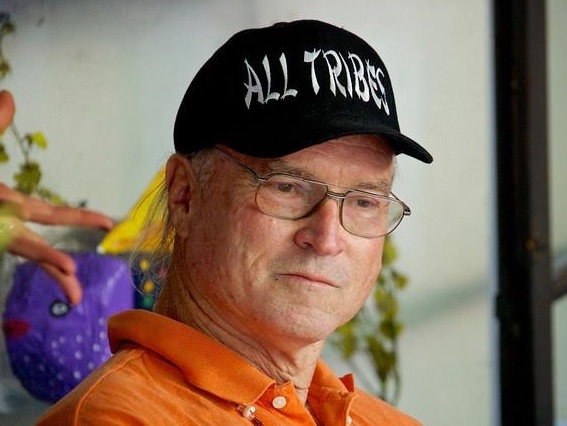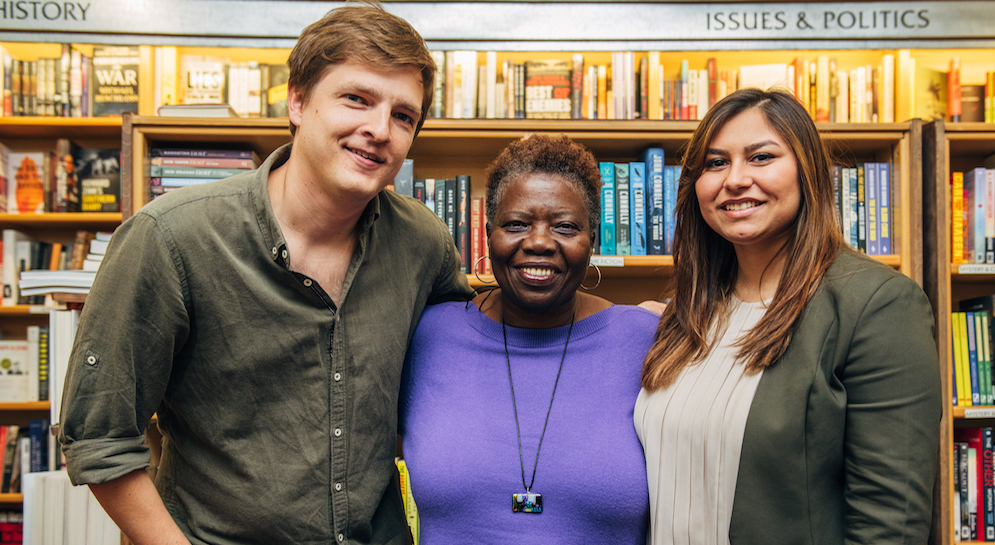Writing in Community
Jim Hornsby Moreno is a Vietnam veteran and an adopted member of the Smuwich Chumash tribe. He is the author of Dancing in Dissent: Poetry for Activism (Dolphin Calling Press, 2007), and two CDs of poetry and music: reversing the erased: exhuming the expunged (Dolphin Calling Press, 2016) and A Question From Love (Dolphin Calling Press, 2017). His poems have appeared in Tidepools, Magee Park Poets Anthology, the San Diego Poetry Annual, and others. Hornsby Moreno is a teaching artist with San Diego Writers, Ink, and on the advisory board of the Poetic Medicine Institute in Palo Alto, California.
 On November 18 I facilitated a workshop at San Diego Writers, Ink called Gems of 10 Imagists: Masterpiece Poems of Imagism. The course description began with a quote from Wallace Stevens: In poetry, you must love the words, the ideas and the images and rhythms with all your capacity to love anything at all. This quote captures the essence of how I teach: Write from your heart. Don’t let your editor write your poem. Let your poet write the poem. Then, as many have said, turn it over to your (internal) editor so the craft can begin.
On November 18 I facilitated a workshop at San Diego Writers, Ink called Gems of 10 Imagists: Masterpiece Poems of Imagism. The course description began with a quote from Wallace Stevens: In poetry, you must love the words, the ideas and the images and rhythms with all your capacity to love anything at all. This quote captures the essence of how I teach: Write from your heart. Don’t let your editor write your poem. Let your poet write the poem. Then, as many have said, turn it over to your (internal) editor so the craft can begin.
My workshops are not critique classes. I go out of my way in my course descriptions to make that point. I also point out that if you are looking for an audience for your poems, my workshops are not for you. I teach poetry as discovery, as Joy Harjo often describes her writing process. Or as Julia Alvarez wrote: I write to find out what I am thinking. I write to find out who I am. I write to understand things.
After one of my classes in San Diego’s Juvenile Hall I sent Joy one of my student’s poems. I had read “She Had Some Horses” in class, Joy’s poem from her book of the same name. The young woman had written a poem from her heart, obviously influenced by the Muscogee poet. Joy sent me a box of books and CDs with a short note thanking me for the poem. She also encouraged me to continue teaching. A nice prompt from a master prompter.
My workshops involve a lot of research. In the five years I lived on the Pala Reservation, I saw the differences and the similarities of tribes that were just a few miles down the highway from each other in San Diego’s North County. From that experience, my workshops have two parts. The first part exposed students to the poetry of e .e. cummings, Amy Lawrence Lowell, Ezra Pound, Wallace Stevens, and the founder of the Imagist movement T. E. Hulme, among others.
The second part of the workshop focused on poets from other genres, cultures, and generations that resonated with the poems of the Imagists: Sandra Cisneros, Joy Harjo, Octavio Paz, Lawrence Raab, Sonia Sanchez, and William E. Stafford. A three-hour workshop takes two to three weeks of research and is a labor of love finding the bridges that unite poets and people.
Writing in community is different than writing in solitude. When you find a safe space with an instructor that invites you to grow as a writer, your writing will take off because of the consciousness in the room and your innate talent as a storyteller, waiting for you to take on the blank page. Write from your heart and listen to your muse.
Support for Readings & Workshops in California is provided by the California Arts Council, a state agency, and the National Endowment for the Arts, a federal agency. Additional support comes from the Friends of Poets & Writers.
Photo: Jim Hornsby Moreno (Credit: Jack Foster Mancilla)




